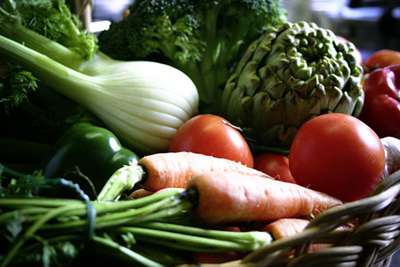Scientists at the University of Soutahmpton's Faculty of Medicine have discovered that maternal diet affects the nutrient composition of fluid in the womb of women and thus may aid in the development of nutritional interventions to support the very earliest stages of pregnancy.
The research carried out by Dr Alexandra Kermack, Dr Ying Cheong, Professor Nick Macklon and Dr Franchesca Houghton and published online in Human Reproduction, showed that the concentrations of amino acids in the uterine fluid of non-pregnant women were affected by diet: a less healthy diet was associated with altered concentrations of amino acids compared to those with a healthy diet.
Dr Franchesca Houghton, Associate Professor at the University of Southampton, was the senior author of the paper. She comments "This is the first report showing that diet can alter the nutrient composition of human uterine fluid, which nurtures the early embryo. Since we know that the environment in which an early embryo develops is important for future health, recognisiing that it can be altered by diet is of great significance.
"In this study, we concentrated on amino acids as these have many important roles for example as building blocks of protein, as a source of energy and antioxidants. At this stage, our findings are not trying to give dietary advice to women but further research is now required to determine the impact of diet around the time of conception, on the uterine environement and embryo development."
The research was funded by the MRC, the National Institute for Health Research and the University of Southampton.
More information: "Amion acid composition of human uterine fluid: association with age, lifestyle and gynaeological pathology", by Alexandra J Kermack et al. DOI: 10.1093/humrep/dev00
Journal information: Human Reproduction
Provided by University of Southampton





















